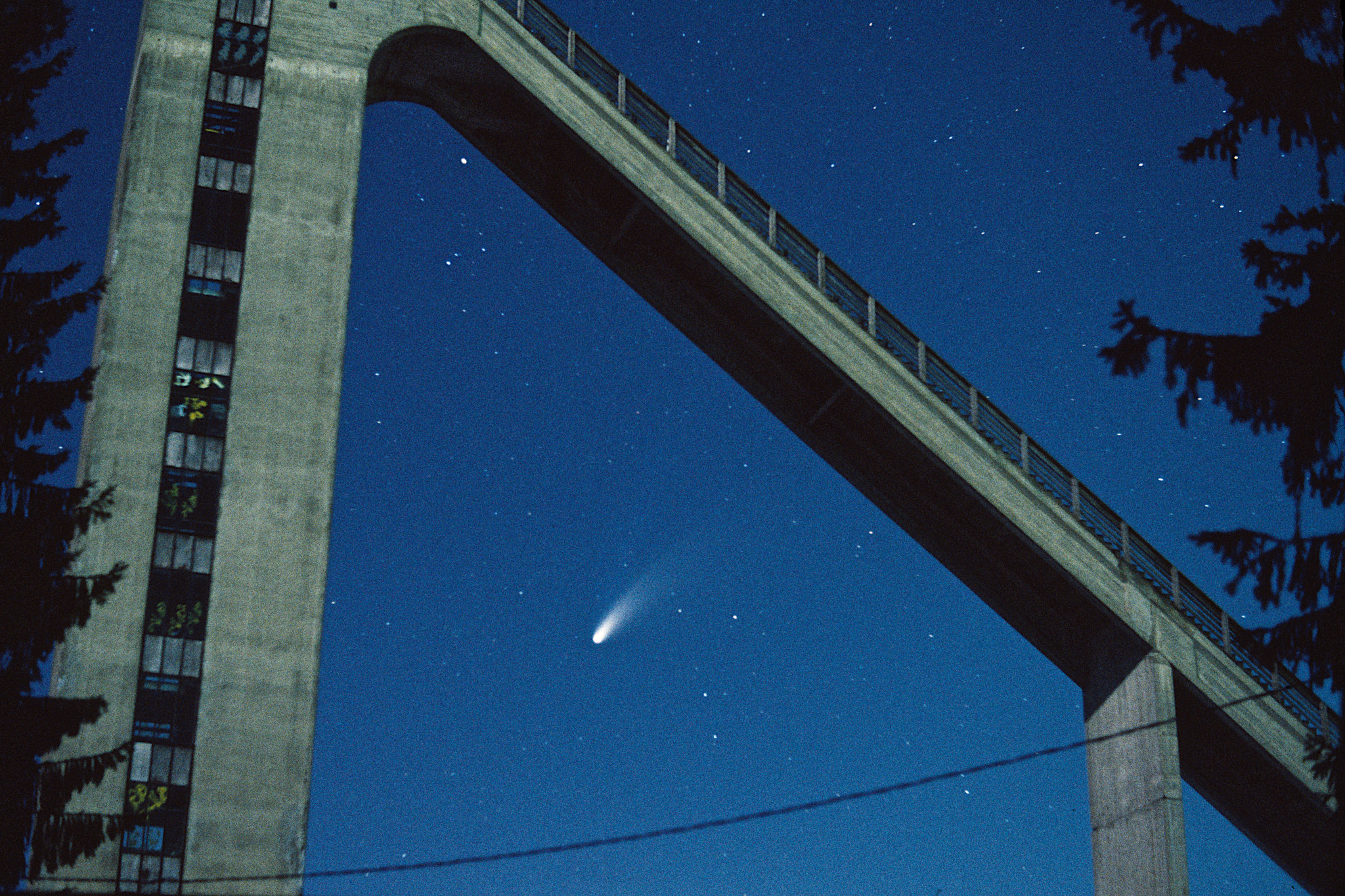The 1997 mass suicide of the Heaven’s Gate cult in Rancho Santa Fe, California, remains the largest such action ever committed on American soil. Believing that their alien allies would arrive in the tail of the Hale-Bopp comet to “pick them up” and take them to a level of existence beyond the human realm, the members—after dressing in striking uniforms paired with black Nike shoes—consumed large quantities of barbiturate drugs with alcohol in order to meet their destiny.
Print and television media tended to dismiss the 39 members of the group as “crazy” or as having been completely brainwashed by their leader, former music teacher Marshall Applewhite. The reality, however, was much more complicated.
Heaven’s Gate, a new podcast hosted by Glynn Washington of WNYC’s Snap Judgment, dives deep into the group’s lengthy history, the backgrounds of its leaders, and its members—showing that there is more to the story than just a mass suicide driven by the group’s “weird” beliefs. Washington is uniquely suited to host a podcast on this misunderstood religious group; as he explains in the first episode, he grew up in the Worldwide Church of God (now Grace Communion International), a group that also had a charismatic leader, Herbert W. Armstrong. The overarching point that Washington makes in the podcast’s first episode is that the Heaven’s Gate members were not “crazy” at all—and that membership in a group that looks strange or scary to outsiders is something that could happen to anyone.
The somewhat bizarre ordinariness of Heaven’s Gate manages to come through, often in unexpected ways. One woman whose son was a member of the group comments as she watches a video recorded during the group’s holiday celebration in 1996: “You see them not as cultists, but as regular people […] I’m glad to know that [her son] was loved, and that he loved others.” For all of the press hubbub surrounding the group’s mass suicide—and the more sensationalistic aspects of the group’s practices, such as their chosen asexuality—it is easy to forget that the Heaven’s Gate members were people.
By interviewing a wide range of subjects—including former members of the group, relatives of the deceased, and religious studies scholars (including Benjamin Zeller, author of an academic book on the group released in 2014)—Washington and the producers of the podcast manage to impart a more complex story, or series of stories, about the group and its practices other than its poorly understood end.
Although only two episodes of the podcast have been released thus far, these first episodes set a high bar for future installments; episode two, in particular, is a rich, layered exploration of the group’s leaders, Bonnie Lu Nettles and Marshall Herff Applewhite, their backgrounds, and some of the personal and spiritual issues that motivated them to start Heaven’s Gate. The segments of episode two where Washington interviews Nettles’s daughter prove to be quite moving, and listeners might wonder what could have been, had Nettles and Applewhite not abandoned their families to start a religious group.
At the same time, however, with the group’s fairly spectacular ending, the story of who the members and leaders during (and before) the group’s long history is one that needs to be told. Don’t be surprised if the Heaven’s Gate podcast makes both critical and listener best-of lists for 2017.
Photo credit: Jukka Kervenin/Creative Commons

